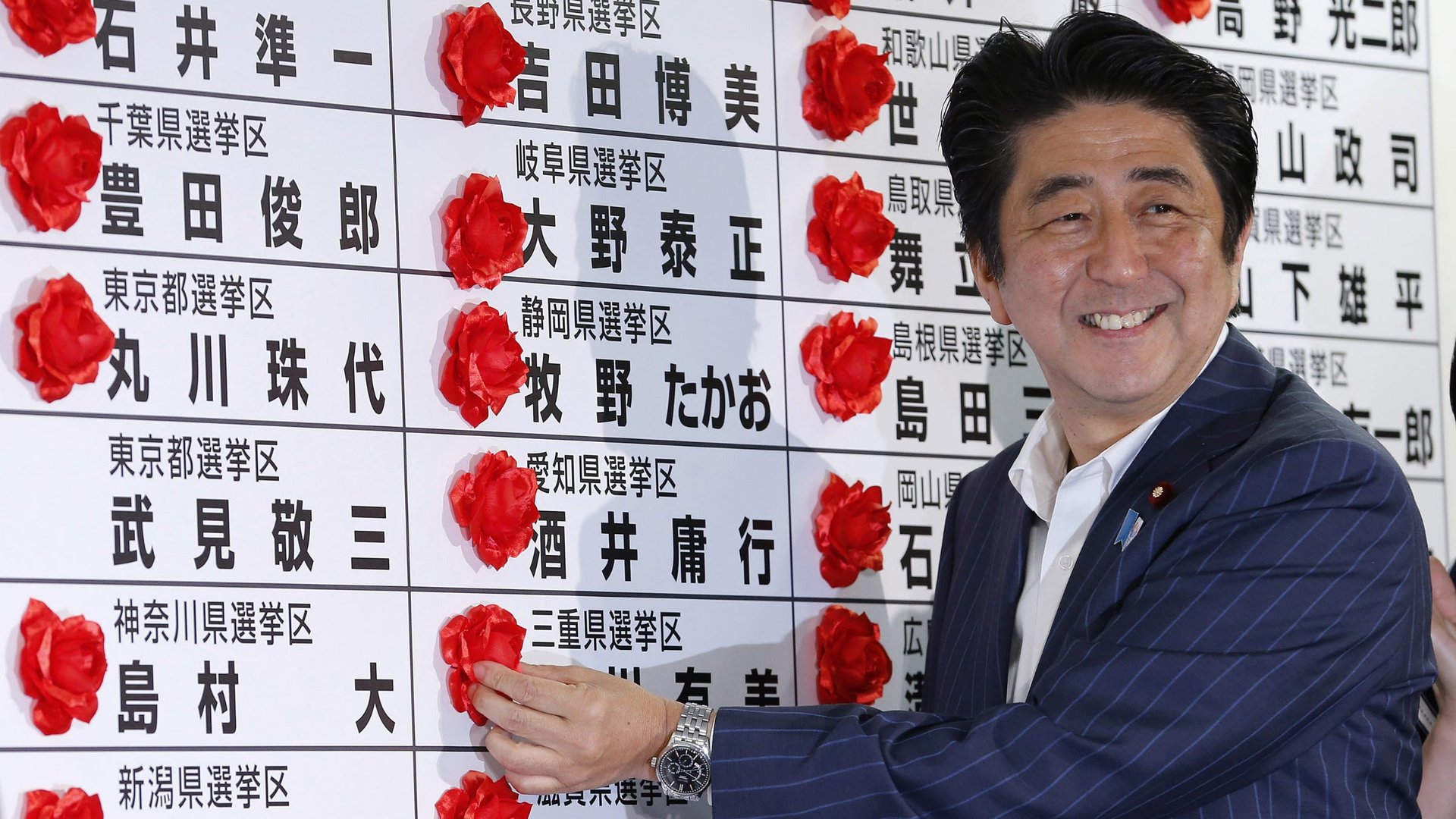Shinzo Abe’s mandate is now sealed. The question now is how he’ll use it
Prime minister Shinzo Abe’s coalition won at least 76 of 121 contested seats in elections for Japan’s upper house of parliament, based on early voting results. The coalition—comprised of the Liberal Democratic Party (LDP) and its smaller ally, New Komeito—will now control both houses of parliament for the first time since 2007.


Prime minister Shinzo Abe’s coalition won at least 76 of 121 contested seats in elections for Japan’s upper house of parliament, based on early voting results. The coalition—comprised of the Liberal Democratic Party (LDP) and its smaller ally, New Komeito—will now control both houses of parliament for the first time since 2007.
The victory shores up Abe’s mandate for his sweeping economic reform program, which is popularly known as “Abenomics.” The program so far has been marked by aggressive quantitative easing by Japan’s central bank, as well as increased fiscal stimulus. Even though Abe disappointed with his third and final pillar of Abenomics, structural reform, 72% of voters approved of Abe’s economic management, according to exit polls.
However, changing Japan’s economy, which has been mired in nearly two decades of deflation and minimal growth, isn’t necessarily Abe’s priority anymore. The question now is whether the notoriously hawkish Abe will use that mandate to advance his economic agenda or instead turn his attention to changing the constitution’s anti-war stance.
While today’s victory certainly makes that possible, it far from a guarantee. Amending the constitution requires a two-thirds majority from both houses of parliament as well as a voting majority in a national referendum. Winning public support will require a rigorous national debate. And it looks as though the LDP and its allies are still short of the super-majority they need to call a public referendum.
Even if Abe does shift his focus on to changing the constitution, he still has plenty to flesh out when it comes to the structural reforms that are so critical to the long-term sustainability of Japan’s economy. With the era of partisan gridlock with the opposition Democratic Party of Japan (DJP) behind it—the next national election is in 2016—Abe will have a better shot at pushing through more ambitious reform than the measures he proposed in early June.
However, it’s not all smooth sailing from here. The LDP isn’t always easy to whip into formation, particularly on matters that involve deregulation. Plus, if Abe expends political capital on his plan to change the constitution, it could come at the expense of backing for his more radical—and necessary—structural reforms.